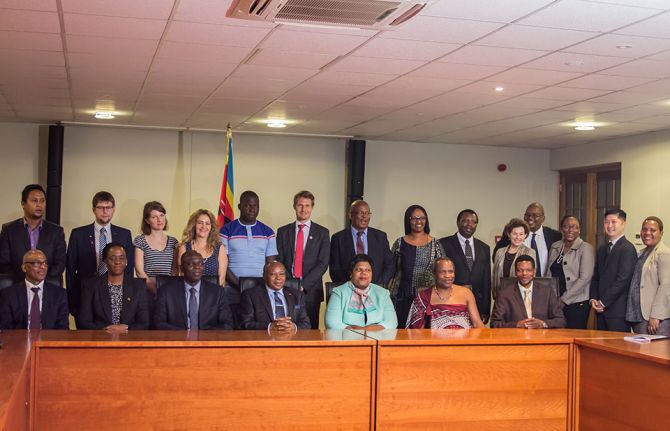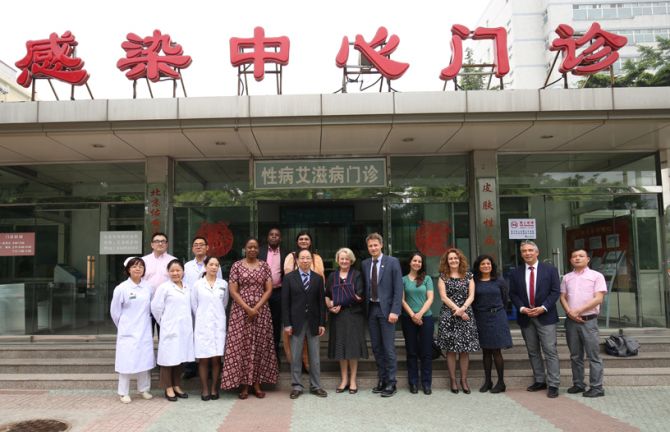UNAIDS Programme Coordinating Board sees South Africa’s AIDS response first-hand
Ahead of its 43rd meeting in December, the UNAIDS Programme Coordinating Board (PCB) conducted a four-day visit to South Africa between 15 and 18 October. During the visit, the delegates met with a wide range of national and development partners working on the AIDS response and conducted a number of site visits in order to experience the support of the Joint Programme to the national AIDS response in a high-burden country.
Première Ligne in Geneva showcases safe injection centre to UNAIDS Board members
Sitting across from the bustling main Geneva train station, the lime-green block structure called Quai 9 stands out. The building houses a supervised drug injection centre run by the non-governmental organisation, Première Ligne. Quai 9 (track 9 in English) also provides primary health care services as part of its harm reduction drop-in centre to people who use drugs.

UNAIDS PCB learns about the response to HIV in Swaziland
A delegation of the UNAIDS Programme Coordinating Board (PCB) visited Swaziland from 14 to 16 November.

Acceleration and innovation in China’s AIDS response
A delegation of the UNAIDS Programme Coordinating Board (PCB) visited China from 9 to 12 May to get insight into how the country’s national AIDS response is on the Fast-Track to end the epidemic as a public health threat by 2030.

Zimbabwe’s accelerated response to HIV
A delegation of the UNAIDS Programme Coordinating Board (PCB) conducted a field visit to Zimbabwe from 2 to 4 June to get a first-hand look at how the country is fast-tracking its national AIDS response to end the epidemic as a public health threat by 2030.

Leadership and focus on key affected populations frame Indonesia’s response to HIV
A delegation of the UNAIDS Programme Coordinating Board (PCB) conducted a field visit to Indonesia from 22 to 24 October to see how the country has implemented an integrated and decentralized response to AIDS that has accelerated the strategic use of HIV treatment, increased testing and counselling and strengthened HIV prevention services for key populations.
Zambia entering a critical phase in its response to HIV
An international delegation of the UNAIDS Programme Coordinating Board (PCB), made a recent visit to Zambia from 4-6 November to learn more about the successes and challenges in a country where almost 13% of the adult population is living with HIV.
